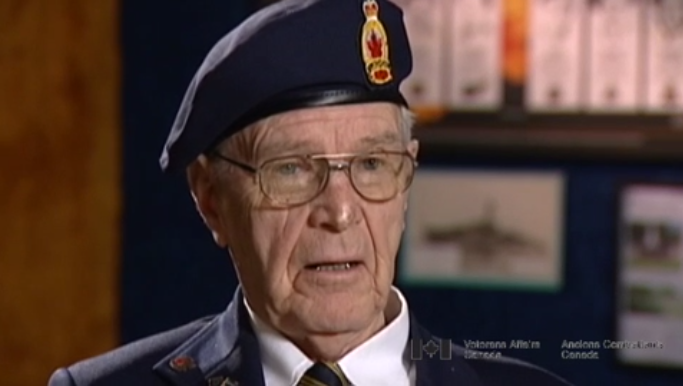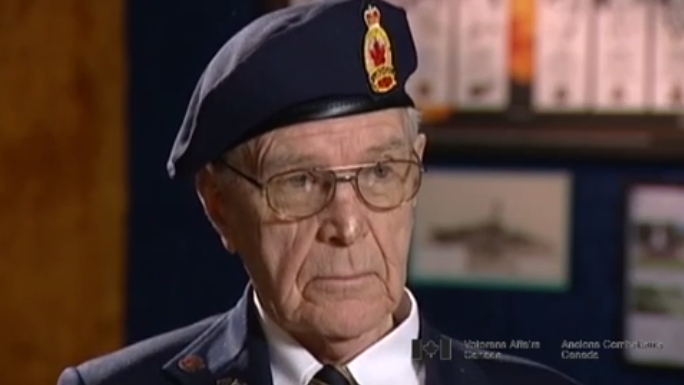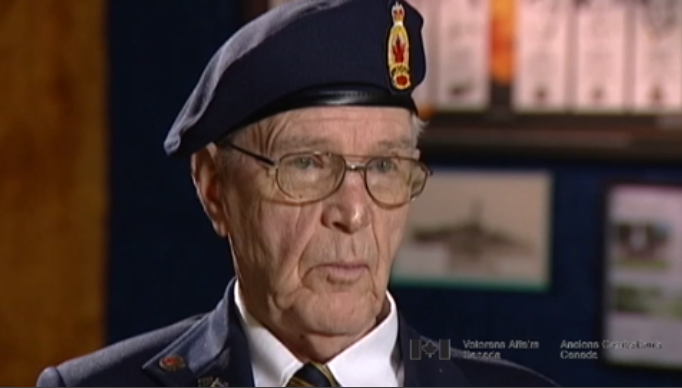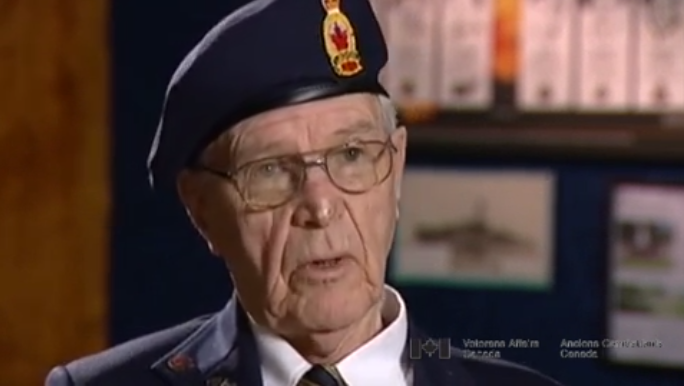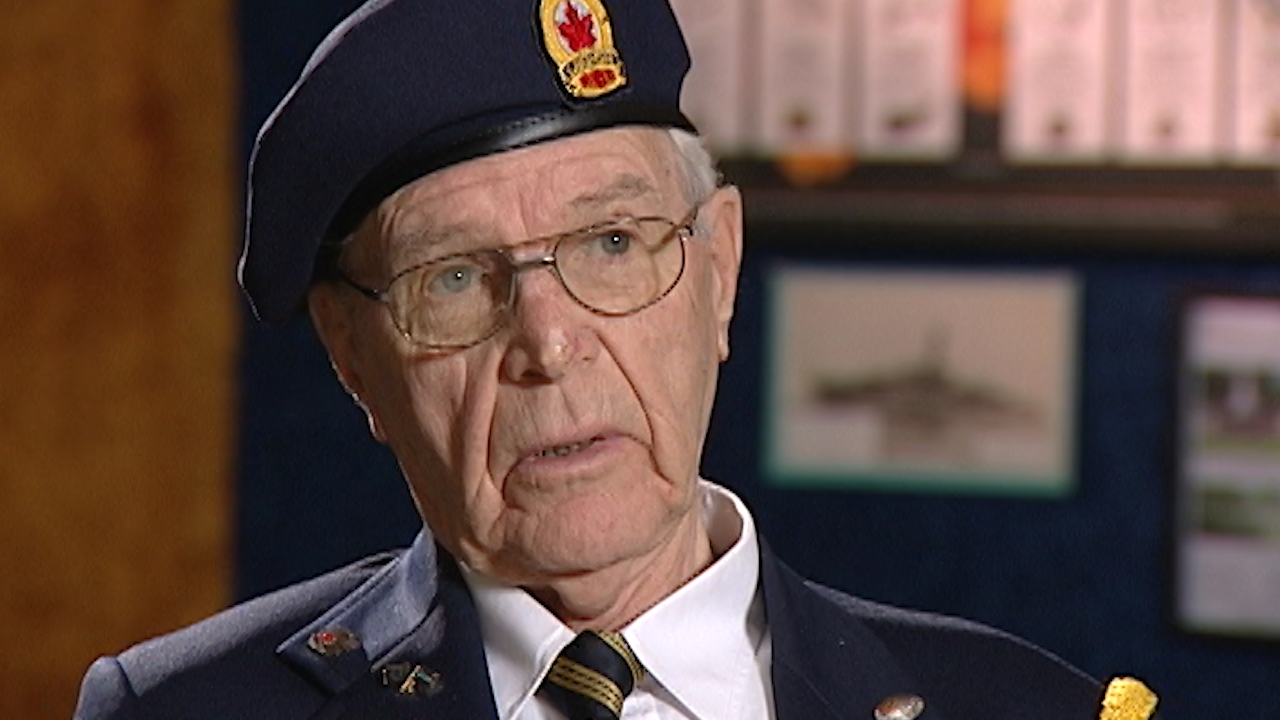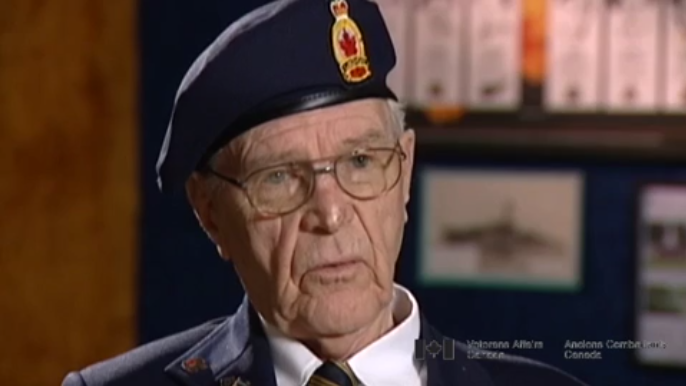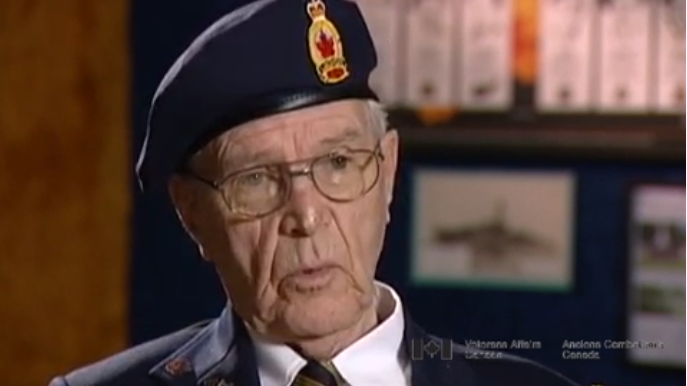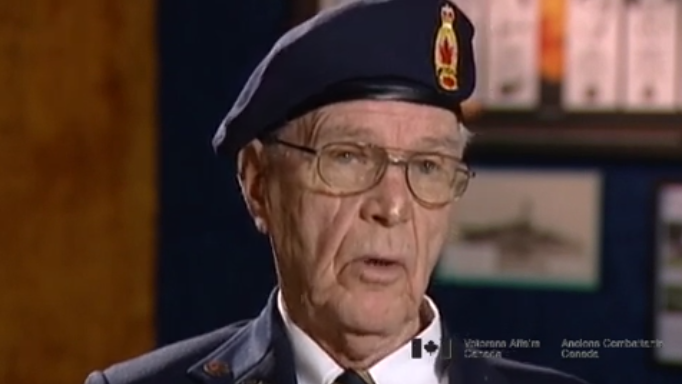I can’t tell you what fear is
Heroes Remember
I can’t tell you what fear is
Transcript
Well I know lots of it, but I don't know how to describe it.
I was feared a lot, most of the time I suppose. Feared of one
thing or another. Can't tell you what fear is. Just being scared,
that's all. And you're happy when it's, when that battle's over
with, and you're having a little rest. "Oh, I made it again."
And, so, you're happy. Not happy, happy, but happy. I, I suppose
that's a good example. If you remember on the Leopold Canal,
when we did that. The Germans were on the other side of the
canal, and we were on our side. And it was a very deep canal,
but it was lar-, and there was a bunker on the other side. It was
our job to go over and capture the bunker, and that portion of
what the Germans owned. So, anyway, we . . . There was
machine gun placements on the other side, so we, we lay on our
bellies, four people, and then crawled and run over and get
down, and we had a little canvas boat down there. Then we could
get on the other bank. When you got on the other side, you were
safe because the Germans could not see you because they were up
on the other bank, high up. Anyway, we, I was one of the
last, but there'd be four people go. So many didn't make it, and
you just grab them by the feet and pull them back, whether they
were dead or wounded or what they were, you just pulled them back
pulled them back. They were . . . Those who made it, made it,
and another four went. I think that was the most time I
was . . . I think I was more scared in my life at that time
than ever because I'd seen so many just killed right there, and
I'd help pull them back, and it was my turn next. So, yeah, I was
scared. See, there's a bugaboo when you're been in the front
lines for any length of time and you see your friends get killed
or wounded, or a whole bad battle go wrong, or something, and the
ones you joined up with and, and went into battle with are
becoming less and less. Then mentally you, you become that you
know it's your turn next. It just has to be 'cause they're all
gone, and you go the rest of the war that way. I did. Every
time I thought, every day I thought, well it was my day.
It never was, but that's the feeling you get, and it's, and
it's terrible. And then I got on the other side with my company
commander and my wireless set on the other embankment, on
the other side. We were standing up, not standing up but we were
looking out over the embankment, and I heard "snap, snap" several
times past my ear. And I said to him, I said, "What's that
snapping?" And he pulled me down, and he said, "That's a sniper
over there." He said, "Those are bullets." And they were just
going past my ear, and then there was two little nicks in my
leather jacket where they had hit. I was feared, I was scared.
And we finally took that, took that bunker, and the Germans were
in one end and we were in the other for a little while. But
that was such a big battle that after a day or so, they, they
called a truce, of all things, in the middle of the war. The two
sides went out and gathered up our dead and wounded for an hour.
When that time was ended, the bullets started flying again. If
you can imagine war like that, that's how it was.
Description
Mr. Hall discusses the concept of fear in relation to the action at Leopold Canal.
John Hall
Mr. Hall was born in Whitewood, Saskatchewan, in 1921. He worked on the family's farm until he enlisted in the Royal Regina Rifles. He was shipped overseas on a converted sugar freighter. Once in England, Mr. Hall experienced the Battle of Britain from the perspective of the local citizenry. He spent more land duty in a mail sorting depot until his Regiment joined the D-Day invasion at Juno Beach. He was a radio operator. Mr. Hall took part in numerous actions, most notably Caen, Calais and the Leopold Canal and the Liberation of Holland. After leaving the Army, Mr. Hall worked in the Canadian North with the Department of Natural Resources.
Meta Data
- Medium:
- Video
- Owner:
- Veterans Affairs Canada
- Duration:
- 4:09
- Person Interviewed:
- John Hall
- War, Conflict or Mission:
- Second World War
- Location/Theatre:
- Europe
- Battle/Campaign:
- Normandy
- Branch:
- Army
- Units/Ship:
- 436 Squadron
- Rank:
- Corporal
- Occupation:
- Signalman
Related Videos
- Date modified:



